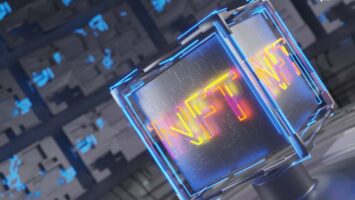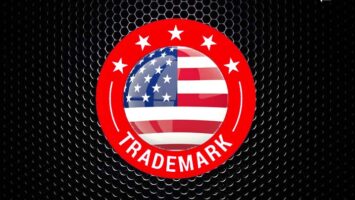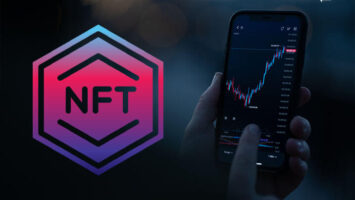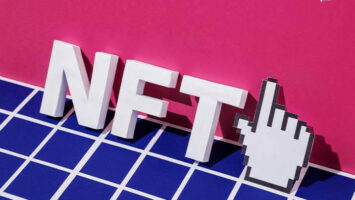NFT critics call these tokens useless though they hold several uses to those who own them. The digital world sees digital assets of no use just because they can be reproduced and duplicated. However, non-fungible tokens differentiate the original asset from the copied.
These tokens pave the way for new pathways to transfer assets over different platforms, which is termed, interoperability. Owners of NFTs have complete ownership of their digital asset without depending on a web server or third-party in terms of custody options.
Let us discuss some of the very prominent use cases of NFTs in different fields.
Movies
Both the independent movie industry and Hollywood have gone the NFT way for various reasons. For streaming platforms and big traditional studios, these tokens have emerged as the new source to make money for their IP and falling home entertainment industries.
Warner Bros. is rethinking about its home experiment’s future via its ‘Lord of the Rings’ non-fungible tokens. These NFTs open exclusive traits as well as movie’s copy; thus, replacing the DVD with a non-fungible token.
Coming to Netflix, its approach regarding NFTs for ‘Stranger Things’ is different. On completing weekly online games, it planned to give digital NFT posters of the stars of the show as rewards.
Niels Juul, an independent film producer, considers NFTs as an alternative to fund movie projects. He created NFT Studios and KinoDAO to finance small as well as medium-budget movies that won’t get support from big studios. KinoDAO enables buyers of NFTs to share their opinion in decisions regarding filmmaking and get unique token-gated rewards and access.
Bryan Unkeless, co-producer of Hunger Games, desires to use these tokens not only to fund but also to create followership for Runner, a forthcoming multimedia project.
Then there are actors like Scott Eastwood and Anthony Hopkins who have entered the NFT space as well. The latter’s Ethereum NFTs showing him in multiple roles were sold out in minutes while the former is planning to release his NFTs for his die-hard fans.
Music
Musicians like 3LAU and Steve Aoki believe that revamp is what the traditional music industry needs. A very small percentage of entire royalties from the streamed songs is given to artists.
Electronic music artists and producers have started exploring NFTs alongside their potential to have an even direct connection with their fans without depending on big record labels.
During a Gala Music event in February this year, Aoki confessed that he made more revenue from NFTs as compared to what he made in a decade of music.
Royalties issues is the reason 3LAU began Royal, his own music platform. Royal enables artists to acquire their music and share music rights’ percentages to paying fans via sales of NFTs. Illmind and Tycho are among musicians who wish to utilize NFTs as tickets to their special communities.
Electronic artists are more inclined towards NFTs and are the most popular on Audius, a streaming platform for musicians, besides hip-hop artists.
Fashion
In the middle of the metaverse buzz this year, a number of luxury brands came forward to launch their NFT collections based on digital wearables or visual art. At times, such NFTs were linked to physical assets of the real world.
Certain high-fashion brands use Web3 and NFTs to impress the youth. Tiffany launched artisans-crafted NFTiff exclusively for CryptoPunks holders and allowed Punks owners to see their NFT changing into a real Tiffany’s necklace by paying 30 ETH.
Gucci not only purchased land in The Sandbox but is also active on Roblox. Besides releasing its own NFTs, it shared in May this year that it will accept ApeCoin and Bitcoin as mode of payment.
Other brands that have embraced NFTs include Prada, Balmain, Givenchy and Dolce & Gabbana. Sportswear and streetwear space have Puma, Adidas and Nike shifting into Web3. Other than buying RTFKT, Nike has launched several sneaker NFTs that are at times connected to real sneakers.
Adidas is linked to Yuga Labs and will launch digital wearables; whereas, Puma has purchased .eth ENS name and has released metaverse wearables.
Gaming
Companies such as Epic Games, Ubisoft, Square Enix and Take-Two have shown interest in developing games with cosmetics as NFTs and in-game assets.
Despite being optimistic about NFTs, Electronic Arts isn’t planning to develop NFT games as of now. In terms of Microsoft, the company has mixed views as it banned third-party NFTs in Minecraft. However, it has a blockchain lead who recommended Web3 and crypto belong to the broader portfolio of the company. Sony is discovering in-game NFTs and filed NFT patents in 2021 for gaming.
According to gaming NFT advocates, games associated with NFT assets enable gamers to capitalize their time and seek ownership of their digital assets and achievements.
A brand new class of games has originated and is focused on NFTs. Alien Worlds, Axie Infinity, Big Time and Splinterlands are Web3 games that have titles with NFTs at their focus.
Various gaming firms have stepped into Web3 with an aim to digitize and modernize their brands. GameStop announces adding Web3 gaming NFTs to its marketplace through Immutable X.









